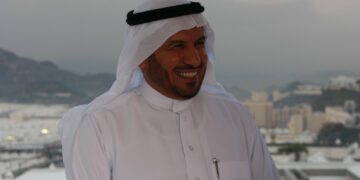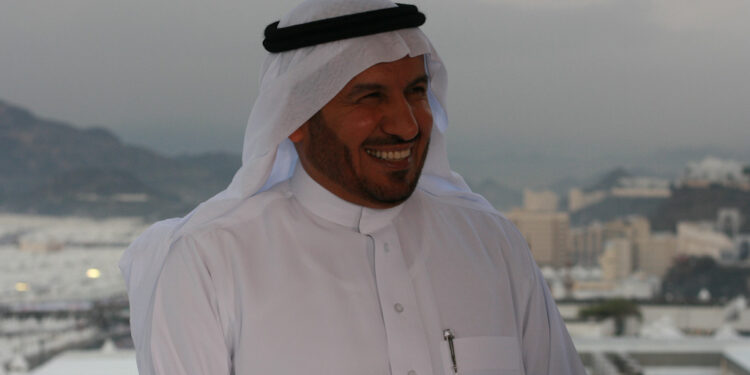King Salman Relief was founded in 2005 the organization has spent over $5 billion on over 1,500 projects in 59 countries around the globe.
The Supervisor General of the KSRelief is Abdullah bin Abdulaziz Al Rabeeah. a Saudi pediatric surgeon who has a made significant contributions to medical practice both in his native Saudi Arabia and abroad.
Al Rabeeah sat down with the author to discuss some of KS Relief’s recent projects.
Q: How has your background as a surgeon helped you in managing an international relief organization?
A: Very good question. This training helped me in several ways. Being a doctor and pediatric surgeon put me in touch with children and people in need around the globe. As a surgeon I have separated Siamese twins and dealt with many medical [matters] beyond the boundaries of Saudi Arabia. I have 30 years of medical experience with a specialization in conjoined twin separation and have worked in 21 countries around the world. This has helped me to understand the challenges and difficulties that families and societies face. That experience is reflected a lot in my personality, my knowledge, and my understanding of different cultures and societies. It has added value to my own wealth of experience which helps me run this organization.
Q: KS Relief has been very involved in Yemen where the conflict greatly impacts children from the issue of child soldiers to de-mining. Can you tell more about the work you are doing in Yemen on those issues?
Our organisation, KSRelief is a woman- and child-focused organization. In Yemen we are particularly focused on the wellbeing of children. Some programs are especially important to me, including the child soldier program. I, as a doctor, am very disturbed to see innocent children loose their lives, on the front line of the conflict, especially by the Houthi side.
Some 20,000 children have been put at risk in this way. So we have created this program to take those children through psychological rehabilitation and educational, social, and family counselling programs to bring back their childhoods. If we don’t do that we will be facing a threat to Yemen, the region, and internationally. Those children, if left uncared for could grow in the next generation of terrorists. So this program has added value to humanitarian work. We should learn from the expertise of this program and make it more global. The de-mining project; it’s really terrible to see children missing legs and hands playing in the streets. For Saudi Arabia to have a wide-spread de-mining project for Yemen will go a long way towards protecting children. A lot of them have lost their limbs, but we should do everything we can to minimize their loss. Another program that compliments this involves amputee rehabilitation centers, of which there are three in Yemen. This is at least helping them to walk and use their hands. We have two programs: one is preventive, and one focuses on rehabilitation. Children are valuable to the future of the country, and important to their families. The more you do for them, the more you are able to help protect society.
Politics aside, How can the international community assist in the humanitarian situation in Yemen in a more effective way in your estimation?
First of all, the UN and the international community should work together hand-in-hand to put an end to this conflict and apply the necessary [diplomatic] pressure. Five years is enough, and we should work together to rebuild and bring a future to the children of Yemen. Saud Arabia has said more than once that they will support any effort to reach a political solution, and the UN, including their envoy to Yemen, can count on Saudi Arabia being part of a sustainable solution. Secondly, we should also ensure that the humanitarian work and fundraising will raise enough money to ensure stability in the country long after the war ends. But more importantly, we should make sure that this money is well coordinated, bridging humanitarian and developmental program together to secure immediate relief. We should also build so that communities have something that they can count on and is sustainable for the future.
In recent years Saudi Arabia has accepted almost a million refugees. The figures as of 2020 were 561,000 refugees from Yemen inside Saudi Arabia, and 262,000 from Syria here in Saudi Arabia. What is the long-term plan that Saudi Arabia has for these refugees and improving their lives in the long-term as these conflicts eventually come to an end?
What we and the international community hope for is that we can work together, along with the UN, to help those countries to rebuild, and those refugees to go back to their homes when they want to. Many of them, whether they are in Saudi Arabia or Europe or elsewhere, some of them are very talented and can add value to their homeland. But we cannot expect them to do that until we improve the circumstances in their home countries. To do that, the first thing we need to do is the end the conflict. Secondly, help with the rebuilding and development of those counties. Once that is done, I can assure you a lot of them will be ready to move back to their home counties.
Africa is a big part of KS Relief’s porfolio. What are some of the goals and plans that you have to help the continent meet its developmental goals?
Africa, as you mentioned, features many different counties and has a range of issues we are working on. Foremost among these is helping invest in supporting communities recover from the economic impact of COVID-19 as well as improving agriculture and education, and building opportunities in communities. We are proud to be part of the Lives And Livelihood Project together with the Gates Foundation. Most of this effort is directed at solving challenges in Africa.
What are some achievable goals for your organization in 2021?
Well, our goal this year is to establish projects that will improve the quality of life of the target societies. We are investing more in medical campaigns, volunteer programs, sustainable programs, which are moving us from direct relief to development, but more importantly we wanted to maximise and increase our work on the ground all over the world to leave our foot own prints along the path toward greater human development.






















































